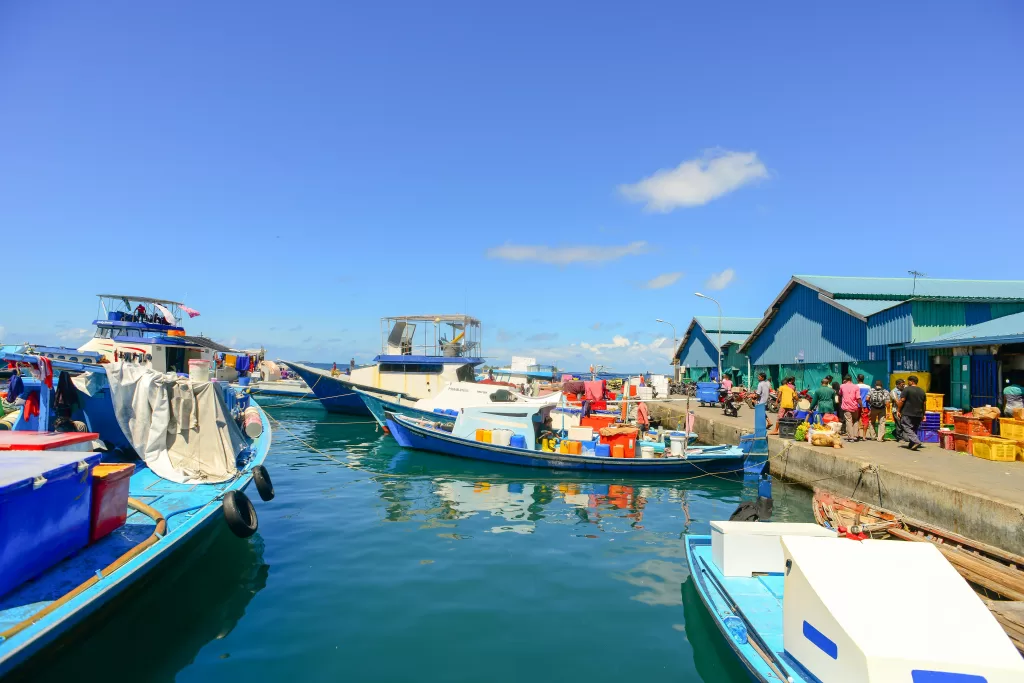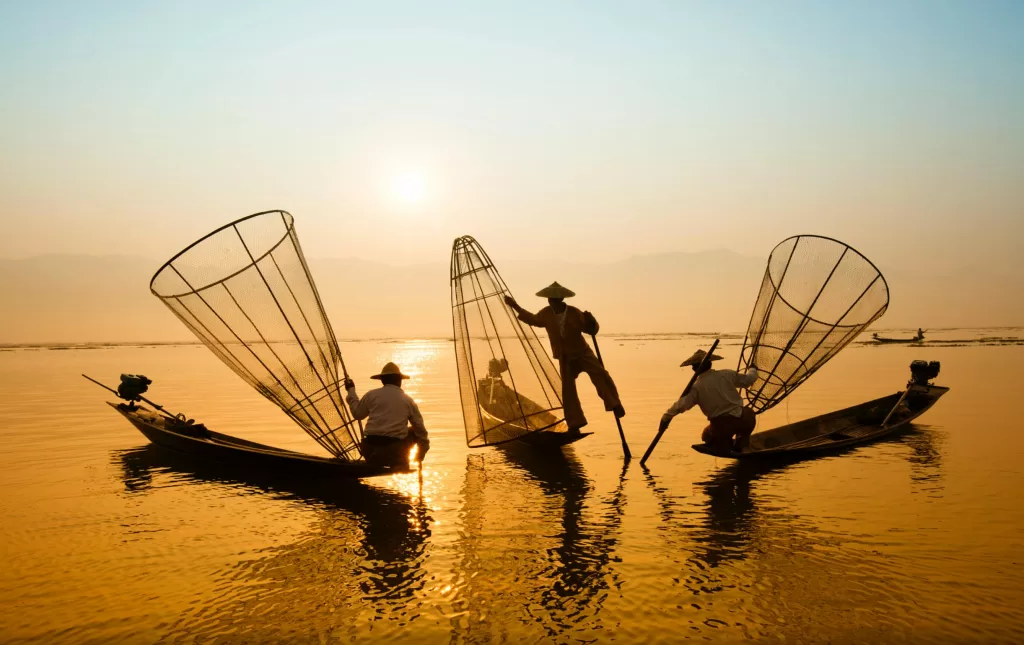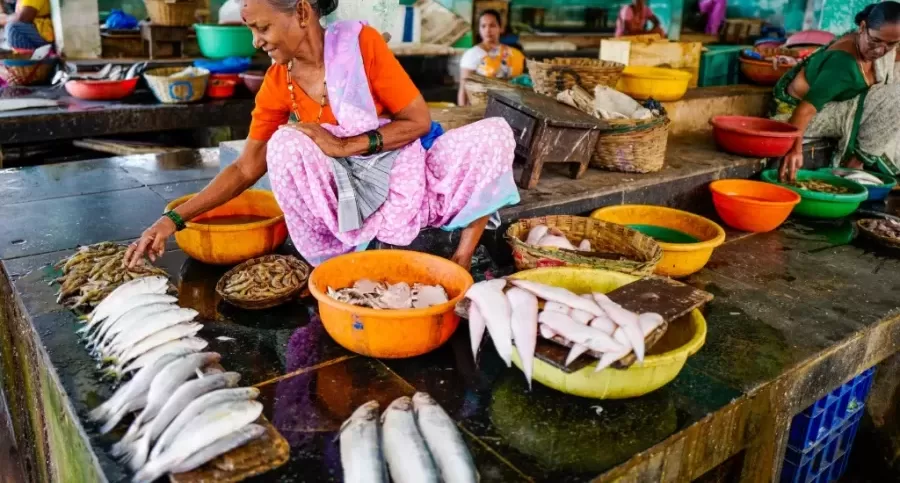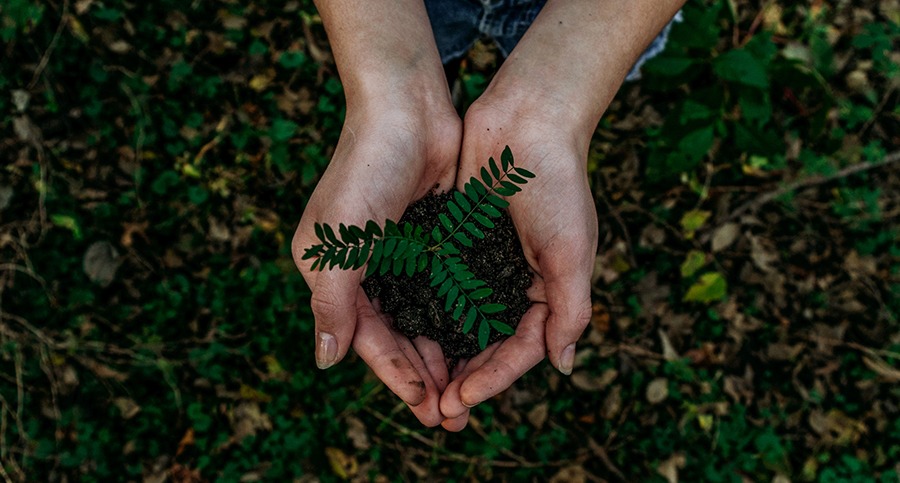For thousands of years, the rhythmic sound of waves has drawn millions of people to the ocean’s edge, where fishing boats return each day carrying more than just their catch. They bear the hopes, traditions, and survival of entire coastal communities (Martino et al., 2023). From the bustling harbours of West Africa to the quiet fishing villages of Southeast Asia, these communities represent some of humanity’s oldest relationships with the sea.
fishing: the ancient lifeline of coastal communities
Coastal communities have depended on fishing as a lifeline for survival for generations (Fabinyi & Barclay, 2021). Fishing represents one of the world’s most ancient hunting methods, dating back to the Palaeolithic period (Rosenberg et al., 2023). Early fishers used simple tools like spears and nets to catch fish from rivers and seas. Throughout history, fish have been integral to human life across cultures and continents. It provides essential dietary protein globally while maintaining deep cultural significance in many societies (Shamsi & Williams, 2020). Today, the fishing sector contributes to poverty reduction, food security, and global market trade. According to a United Nations report, coastal fishing communities contribute approximately $1.5 trillion annually to the global economy (United Nations, 2021). Projections indicate this figure will increase to $3 trillion by 2030, demonstrating the sector’s growing importance.
Currently, fishing provides direct employment for approximately 38.98 million people (Food and Agriculture Organization (FAO), 2020). In coastal communities globally, particularly in low-income regions, fishing remains the primary economic activity, addressing Sustainable Development Goal 1 (SDG1): No Poverty target. Additionally, fish contains essential nutrients, including vitamin A, omega-3 fatty acids, zinc, iron, calcium, and selenium. These nutrients make fish crucial for addressing malnutrition and supporting healthy development in vulnerable communities, a contribution to SDG2: Zero Hunger campaign. However, this vital resource faces unprecedented threats. Climate change increasingly threatens the ocean, the primary source of fish for these communities. Furthermore, global fish populations are declining, with overfishing impacting one-third of fish stocks (Food and Agriculture Organization (FAO), 2020).

Source: (Asad, 2016)
The Legacy of Traditional Coastal Fishing
Traditional coastal fishing communities have historically depended on fishing not merely for survival, but as a cornerstone of their cultural identity. Furthermore, the art of fishing has served as a unifying force, bonding communities through shared practices and collective labour (Garavito-Bermúdez et al., 2023).
THRIVE Framework concept of Multi-Capital Approach recognises that traditional fishing communities inherently valued multiple forms of capital beyond just financial gain. These include human capital (community knowledge), social capital (cultural bonds), and natural capital (the ocean)
;Across the globe, traditional fishing practices embody crucial cultural dimensions within coastal fishing communities (Martino et al., 2023). Similarly, among coastal Aboriginal fishing communities in Australia, fishing creates harmonious rhythms that synchronise with daily life. This maintains sustainable coastal livelihoods (Shamsi & Williams, 2020). For instance, rich cultural heritage is celebrated annually through Nigeria’s Argungu International Fishing and Cultural Festival (Olayinka, 2025). Moreover, traditional fishing encompasses holistic community experiences, it includes men, women, and children (Shamsi & Williams, 2020). Consequently, fishing served as valuable family bonding time and enabled direct transmission of indigenous fishing methods from elders to future generations. Additionally, these small-scale fisheries incorporated sustainable practices that helped prevent overfishing crises, thereby ensuring an abundance of fish species throughout the year.

Source: (Vietnamese Private Tours on Pexels, 2018)
Threats Facing Fishing Communities Today
Coastal fishing communities face numerous critical challenges that threaten their livelihoods and survival today (Enema & Quezon, 2024). Overfishing represents the most significant threat, where fish extraction rates exceed natural reproduction capacity. Consequently, this creates an overfishing crisis that depletes marine resources faster than ecosystems can recover. Additionally, these challenges are compounded by poaching and illegal fishing (Temple et al., 2022). These activities undermine sustainable fishing practices and threaten marine conservation efforts within traditional fishing areas.
Moreover, climate impact on fisheries presents multifaceted dangers to fishing communities worldwide. Rising sea temperatures, ocean acidification, and depleting oxygen levels affect fish populations and marine ecosystems. THRIVE Project framework, Multi-Capital Approach recognises that these threats affecting profit, people, and the planet are interconnected. This approach emphasises that profit or economic gain should not be prioritised over people and the planet. Therefore, the impact of overfishing, illegal fishing, and climate change on these three pillars must be viewed collectively rather than individually. Furthermore, the fishing sector struggles to adapt to these rapidly changing conditions. Traditional fishing methods, while culturally significant, often cannot address modern environmental pressures alone. Consequently, innovative sustainable fishing approaches become essential for ensuring long-term community survival and marine conservation success.
Economic vs. Ecological Balance
Coastal fishing communities face Complex Wicked Problems where economics and ecology interweave. These social, cultural, and economic issues cannot be solved in isolation as they defy simple solutions. Climate change further exacerbates these problems, requiring a Systems Thinking approach that examines how fishing economics intersects with ecology.
Community livelihoods can be protected by striking a balance between immediate economic needs and long-term marine conservation efforts. Traditional fishing methods, passed down through generations, often conflict with modern sustainable fishing requirements. However, the overfishing crisis threatens both coastal livelihoods and marine ecosystems simultaneously (Jamil & Azmat, 2024).
Fishing communities face mounting pressure from climate impact on fisheries and declining fish stocks globally. Therefore, they must navigate between preserving their cultural heritage fishing practices and adopting conservation measures (Gomez & Maynou, 2021).
When communities implement conservation measures, they often discover new economic hardships that threaten their survival. Conversely, prioritising immediate economic needs accelerates marine degradation, undermining their long-term livelihood prospects. Each policy intervention creates unforeseen consequences that reshape the original problem. For instance, marine protected areas preserve fish stocks but can negatively impact community well-being (Cook et al., 2024).
Meanwhile, indigenous fishing methods demonstrate sustainable practices that protected marine resources for centuries. Nevertheless, economic pressures often force communities to prioritise short-term gains over ecological sustainability (Gomez & Maynou, 2021). Consequently, understanding community economics becomes crucial for developing effective resource management policies (Nelson et al., 2022; Twohey et al., 2020)..
Climate Change and Marine Livelihoods
Globally, fishing provides direct employment for approximately 39 million people, supporting crucial coastal livelihoods (Food and Agriculture Organization(FAO), 2020). However, climate change poses unprecedented challenges to these coastal fishing communities worldwide (Landesa, 2025). Rising ocean temperatures alter marine ecosystems, forcing fish populations to migrate (Xu et al., 2024). Consequently, traditional fishing methods become less effective as species move beyond familiar waters. Furthermore, small-scale fisheries face intensified weather patterns that disrupt daily operations (Quezon, 2025). These climate impacts directly threaten coastal livelihoods and indigenous fishing methods that have been passed down through generations.
Additionally, the overfishing crisis compounds environmental pressures on already vulnerable fishing communities. Moreover, unpredictable fishing yields create economic instability for communities that depend on marine resources. This uncertainty undermines progress toward the United Nations SDG1: No Poverty and SDG2: Zero Hunger. Therefore, sustainable fishing practices and marine conservation become essential for preserving cultural heritage fishing traditions in changing coastal environments.

Source: (Botbol, 2017)
Government Policy and Coastal Rights
The governance challenge in the fishing sector mirrors Complex Wicked Problems. When governments implement generalised marine protection policies, they often threaten community livelihoods and cultural identity. These policies are not tailored to individual fishing communities’ specific needs.
Tailored solutions remains critical for balancing coastal fishing communities’ survival with marine conservation objectives (Jamil & Azmat, 2024). However, current institutional instruments often fail to address this need (Elrick-barr & Smith, 2021). Consequently, policy frameworks struggle to integrate traditional fishing practices with sustainable fishing requirements.
Conversely, when policies solely prioritise community rights, marine degradation may continue unchecked. Existing policies create a disconnect between biological management measures and socio-cultural realities (Gomez & Maynou, 2021). Policies must recognise indigenous fishing methods and cultural heritage fishing practices (Macpherson et al., 2023). Additionally, policies should be tailored for each region’s specific context and needs..
- Effective implementation begins with pilot projects that engage direct stakeholders from project commencement.
- These actors should participate actively in policy planning, with their perspectives incorporated throughout the process.
- As an exit strategy, stakeholders can assume project ownership while receiving ongoing oversight supervision from the implementation body.
Sustainable Solutions for Coastal Futures
Addressing the challenges of coastal fishing communities requires innovative approaches that combine traditional wisdom with modern conservation strategies.
INDIGENOUS KNOWLEDGE
Indigenous knowledge is based on a long-time physical and spiritual connection with one’s land, and it is proven sustainable practices that protected the ancient world. They offer valuable insights for contemporary environmental challenges (Jonathan et al., 2025)Therefore, integrating these cultural heritage fishing techniques with contemporary marine conservation creates viable pathways forward (Id et al., 2023).
COMMUNITY-BASED MANAGEMENT
Community-based fisheries management ensures that coastal fishing communities become central actors in taking action towards protecting their source of livelihoods. It promotes accountability and empowers fishing communities to lead sustainable fishing initiatives (Pacific Community, 2025).
MARINE PROTECTED AREAS
Marine protected areas represent crucial conservation tools. The United Nations’ 30% by 2030 initiative proposes establishing marine protected areas covering 30% of global oceans, allowing fish populations to thrive and create spillover effects (Rechberger et al., 2025).
COLLABORATIVE PARTNERSHIPS
Collaborative partnerships between fishing communities, scientists, and policymakers become essential for developing effective solutions (Jamil & Azmat, 2024). Research shows that integrating scientific and traditional knowledge provides additive impact for fostering sustainable development and climate resilience (Melo et al., 2024).
Conclusion and Call to Action (CTA)
Coastal fishing communities are extremely vulnerable to climate change. Daily, they risk their lives at sea to secure their livelihood. Most coastal residents belong to low-income categories, which amplifies their vulnerability. Without proper education and engagement, they rely on traditional knowledge and resist new policies. They fear that the government and other organisations might seize their lands. This creates a false dichotomy.
- First, coastal fishing communities need climate change education. They likely experience its effects but lack comprehensive understanding.
- Second, policies must support indigenous fishing methods while integrating modern scientific approaches. This combination can promote sustainable marine conservation.
- Third, consumers should trace their seafood sources rather than taking them for granted. Unknown seafood origins may inadvertently support illegal fishing.
Therefore, collective action remains essential for securing coastal livelihoods. THRIVE Project concept of Multi-Capital Approach encourages businesses to adopt strategies for the common good. This approach can help the fishing sector thrive and flourish. It benefits all people who depend on fishing for their livelihoods.
Achieving THRIVE goals
To achieve THRIVE vision of a thriving world beyond mere “survival”, one must consider the Foundation Focus Factors (FFFs), Complex Wicked Problems, Multi-Capital Approach, and Systems Thinking. These FFFs requiresrequire a transformative approach beyond the limited scope of related SDGs. While SDG1 aims to eliminate poverty, THRIVE’s Complex Wicked Problems recognises that coastal fishing communities face interconnected challenges. These include climate change, overfishing, and governance failures that cannot be addressed through poverty reduction. Similarly, SDG2 targets food security, but fails to address how the collapse of marine ecosystems undermines long-term nutritional systems. Meanwhile, where SDGs focus on minimising harm, THRIVE’s Multi-Capital Approach prioritises holistic value creation across multiple capitals. Natural capital (thriving fish populations), social capital (indigenous knowledge networks), and human capital (traditional fishing expertise) work synergistically. This builds resilient communities rather than merely addressing individual shortcomings.
Finally, although SDGs target specific outcomes in isolation, THRIVE’s Systems Thinking recognises that coastal fishing communities, marine ecosystems, and economic systems are deeply interconnected. Traditional approaches addressing single issues often create cascading problems elsewhere. This framework enables comprehensive solutions that strengthen entire coastal social-ecological networks.
Ultimately, achieving thrivability requires moving beyond the SDGs’ focus on “net zero” outcomes toward “net positive” impacts. Coastal fishing communities possess the traditional knowledge and adaptive capacity to lead this transformation, but they need policy frameworks and economic systems that support regenerative rather than extractive practices.
By shifting from damage control to transformative design, THRIVE Framework achieves what SDGs alone cannot. They empower coastal fishing communities to become catalysts of ecological and social renewal essential for flourishing marine ecosystems.
A Thrivable Framework
THRIVE Framework plays a crucial role in addressing coastal fishing communities’ livelihood challenges through interconnected solutions. It provides essential tools for communities to navigate Complex Wicked Problems, while building resilience across multiple capitals. Rather than treating overfishing, climate change, and economic hardship as separate issues, this framework recognises their interconnected nature
Through Systems Thinking, coastal communities can understand how their traditional practices connect with modern conservation needs. This approach enables them to preserve cultural heritage while adapting to environmental changes.
The Multi-Capital Approach ensures that solutions strengthen not only economic stability but also social bonds and natural resources. This comprehensive framework empowers fishing communities to become leaders in marine conservation rather than victims of environmental degradation. It transforms the false choice between tradition and survival into opportunities for thriving coastal futures. THRIVE Framework offers a more comprehensive approach through its 12 Foundational Focus Factors, which address the systemic nature of coastal community challenges. Complex Wicked Problems recognises that overfishing crises cannot be solved in isolation. They intersect with climate change, governance failures, and economic pressures in ways that require holistic solutions.
The Multi-Capital Approach reveals how coastal communities depend on multiple forms of value beyond just financial capital. Natural capital (healthy fish stocks), social capital (traditional knowledge systems), and human capital (fishing skills) all contribute to community resilience.
Systems Thinking demonstrates that coastal fishing communities, marine ecosystems, climate systems, and economic systems are all interconnected. Traditional approaches that address single issues in isolation often create unintended consequences elsewhere. This framework helps communities understand how their actions ripple through these interconnected systems, enabling more effective long-term solutions.
For deeper insights into creating thrivable coastal communities, explore our comprehensive research on thrivable Ocean Governance, traditional knowledge systems, and marine conservation strategies. Join our ongoing dialogue through our newsletter, podcast series, and live webinars as we work together toward a thrivable future for all coastal communities.
For more on this topic, check out our whitepaper: ‘Seafood Stewardship Index: Evaluating the Strategies and Sustainability Performance of Keystone Actors in the Seafood Industry‘.
Why trust us?
At THRIVE Project, we’re all about facts that matter—and a future that flourishes. Our team of researchers, writers, and thrivability experts dig deep into the science so you don’t have to. Everything we publish is based on credible sources, double-checked for accuracy, and written with one goal in mind: helping you make sense of the world and how to improve it. We’re independent, non-profit, and here to spark real change with knowledge you can count on. Find out more about our team.
– THRIVE Project























